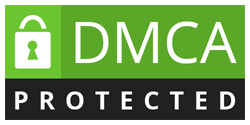Chapter 6 Discussion
Chapter 6 Discussion
1. Choose one specialty court (drug, mental health, veterans, etc.) and conduct outside research on this specialty court. Is this type of court available in your area? Identify its characteristics and discuss your thoughts on its appropriateness and effectiveness in dealing with offenders.
2. How many chances should drug-addicted offenders in drug courts be given (i.e., how much leeway and for which types of offenses) before they are considered to have “failed” the program? Would your response be different for drug addicted offenders in a therapeutic community? Why or why not? Is a therapeutic community more or less effective for achieving sobriety than a drug court? Why or why not?
3. Review the three case studies and the list of conditions for sex offenders on pages 155 – 156. For each case determine which additional conditions should be imposed on the offender in terms of his or her offense. What challenges of community supervision does each case present?
Chapter 7 Discussion
- Should early termination of probation be given as a good behavior incentive, or should probationers serve their entire term regardless of behavior? What are the advantages and disadvantages of each approach?
- There are TWO parts to this question:
- Part 1: Select one of the following scenarios and respond to the scenario questions:
- If you were a CSO and your client refused to report or check in, how many times (or how long) would it take before you filed a revocation with the courts? Support your decision
- If you were a CSO and your client could not find a job, what steps would you take to help this person? At what point would you consider taking him or her back to court to request a modification in conditions or revocation for not having a job? Defend your answer.
- If you were a CSO and your client admitted to using drugs and said that her drug test would come back positive, what would you do? Why?
- Part 2: Answer the following questions:
In a decision to revoke probation, what are the implications for the probationer, the probation officer, and the community? Are these the same or different with a parolee?
- Part 1: Select one of the following scenarios and respond to the scenario questions:
- Describe the revocation process. Do revocation procedures in place now provide due process for offenders? Why or why not? What, if anything, might be lacking?




